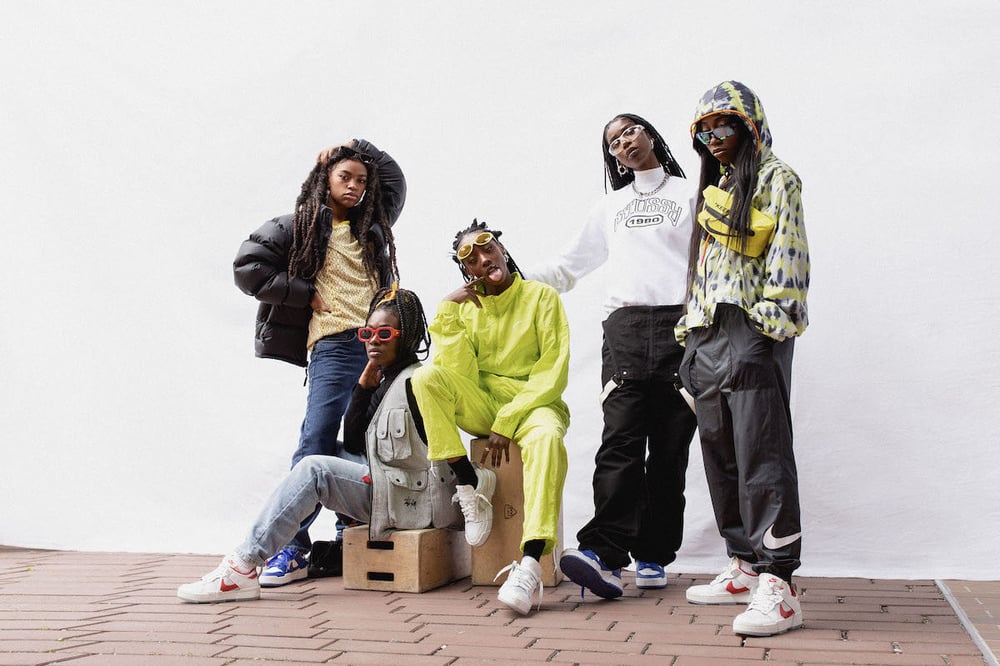By
Bloomberg
Published
March 26, 2025
For the last few years, Nike Inc. prioritized a multi-billion-dollar sneaker franchise that helped the world’s largest sportswear company reach its lofty revenue goals. Now that franchise is sputtering.

Sales of Nike Dunk, a 1980s basketball shoe worn more on the streets these days than on the court, are expected to plummet 70% over two years as new leadership dials back the company’s dependence on its classic sneakers and makes way for other fresh sneaker designs, according to new estimates from analysts at Piper Sandler.
That drastic drop signals a fundamental realignment in how Nike does business as new Chief Executive Officer Elliott Hill, a company veteran who came out of retirement to take the top job in October, tries to stage a comeback after a grim year of falling sales and corporate layoffs. One of Nike’s biggest problems: too many Dunks.
“We will return to the discipline of franchise management that I was a part of for so many years,” Hill told investors in December shortly after becoming CEO. He wants to renew the longtime Nike tactic of keeping goods just scarce enough that shoppers still clamor for more. “We’ve already started managing the inventory in our marketplaces.”
Prior to its Dunk problem, Nike had shown remarkable prowess managing its product lines, cycling in and out of fashion trends by retiring or reducing some styles in favor of others — only to bring them back when the time was right. In 2020, for example, Nike capitalized on docu-series The Last Dance, which featured Michael Jordan, with a line of retro Jordan releases that renewed the franchise.
Hill is steering Nike back toward performance shoes used in sports and training, and has vowed to reduce the size of three lifestyle sneaker lines — Air Force 1s, Air Jordan 1s and Dunks — to balance the retailer’s product offerings. Demand for these classics has waned over the past year.
Of these franchises, Dunk is set to face the “most aggressive actions,” Chief Financial Officer Matt Friend said earlier this month. A representative for Nike declined to provide additional comment on the matter.
In fiscal 2024, Dunks accounted for about 18% of Nike’s total footwear sales, or about $5.85 billion, according to the Piper Sandler estimates. Analysts predict that the business will shrink to just $1.75 billion in Nike’s next fiscal year, which begins in June.
“If you don’t innovate and become overly reliant on what’s worked, you lose share,” said Anna Andreeva, a Piper Sandler analyst who co-authored the report. Analysts examined projected sales for the fiscal year ending in May 2026 compared with estimated sales two years earlier. “That’s essentially what’s happened in the last few years. The current leadership is trying to correct it, which we think is the right thing.”
Nike Dunk had been the world’s hottest sneaker franchise under previous CEO John Donahoe. Last year, Friend told investors that Dunk represented virtually zero sales prior to 2020. A series of hit collaborations with the likes of Travis Scott and the Grateful Dead, then the rise of the black-and-white Panda Dunk, sparked a renaissance for the decades-old line.
As demand rose, Nike looked to sate consumers by releasing new Dunks constantly in every possible color combination and lined up collaborations with everyone from the Wu-Tang Clan to the Powerpuff Girls. Sneaker reseller Goat Group Inc. now has nearly 4,700 different Nike Dunks listed on its marketplace.
“Nike was putting up numbers with the Dunks,” culture magazine Complex wrote. “Nike was making these paint-by-number, every-shade-of-Pantone Dunks by the boatload, with nearly a new one coming out every week.”
By September 2023, it was among the largest sneaker lines in history and had spearheaded Nike’s growth to $50 billion in annual revenue. In the 2024 fiscal year, the Dunk business was as large as Air Force 1 and Jordan 1 combined, according to Piper Sandler data.
The strategy worked until shoppers got sick of the shoes. Last March, Regis Schultz, the CEO of Nike’s key European retail partner JD Sports, warned his investors that demand for Nike Dunk was dwindling. By June, sales were sinking.
This month, Hill said that Dunk and the other classic shoes will retain an important place in Nike’s lineup, but they’ll be a smaller part of the streetwear portfolio. He pointed at shoes like the Air Superfly and LD-1000 as prospective hot sellers. Friend added that in most regions, growth in areas such as running, training and basketball shoes nearly offset those declines in lifestyle footwear.
“The teams are taking all the right actions against those key footwear franchises,” said Hill.



